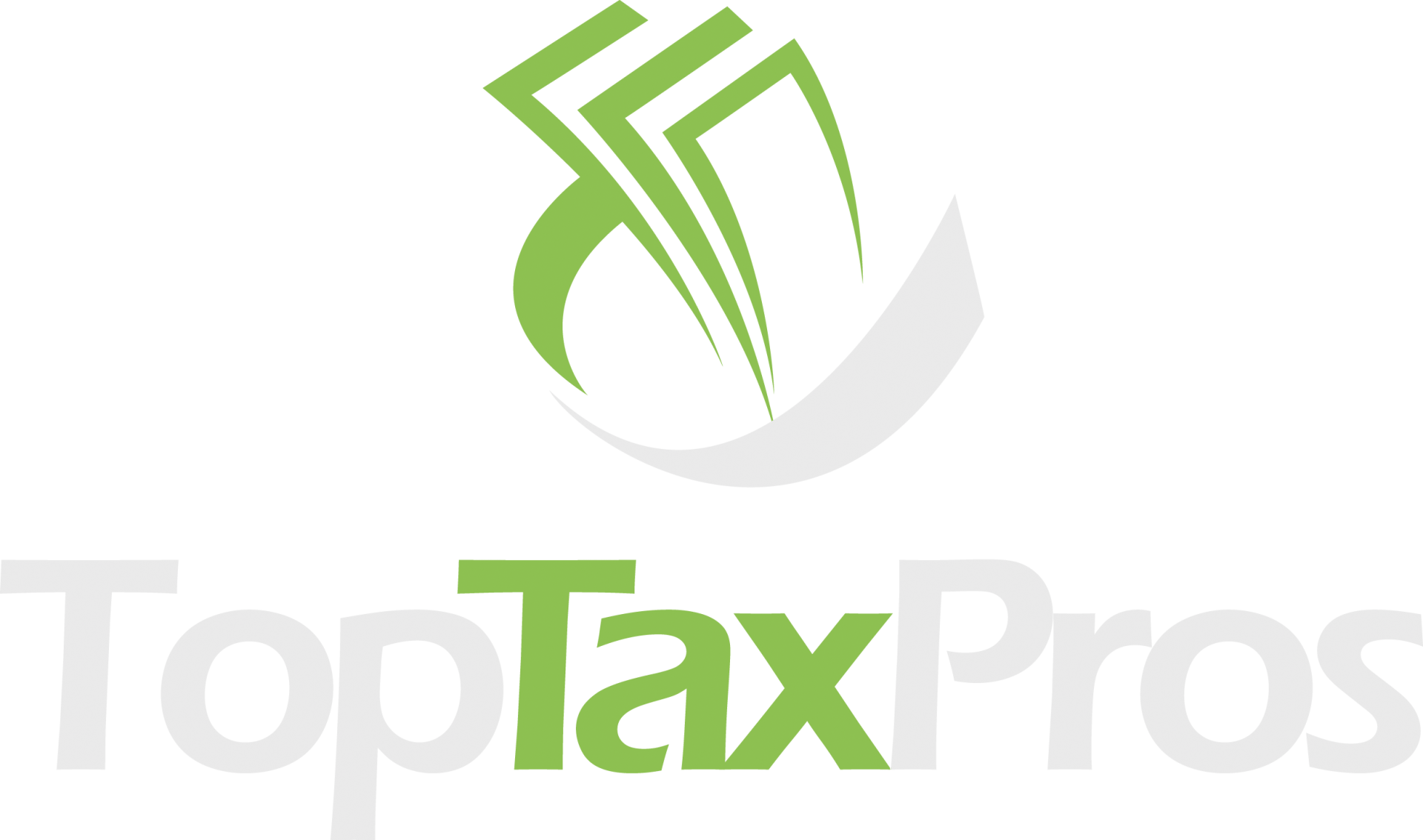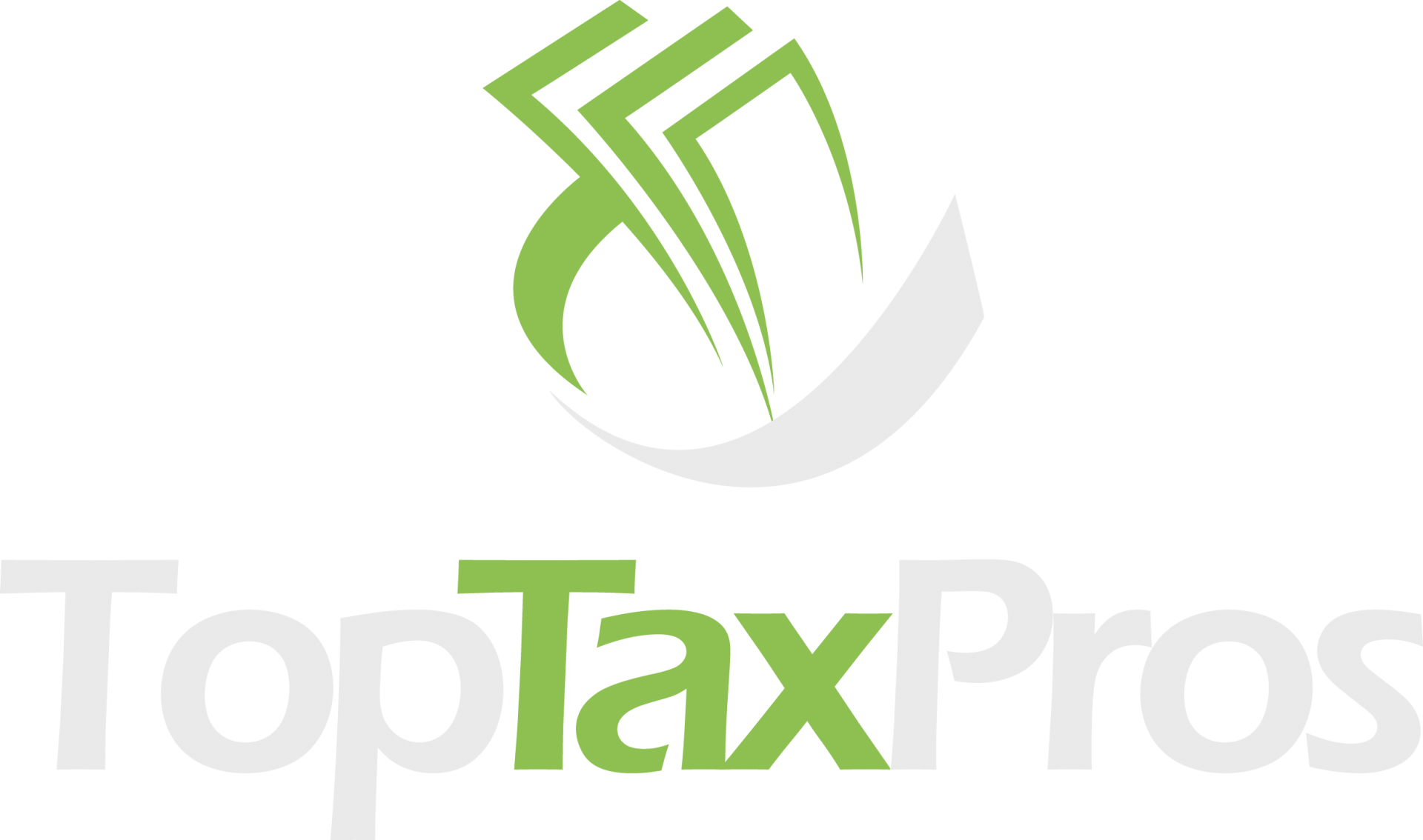Blog
Top Tax Pros

Effective tax planning is crucial for self-employed professionals. Unlike traditional employees, you’re responsible for managing your own taxes, and it’s easy to fall into common traps that can lead to costly mistakes. Here’s a guide to tax planning for self-employed individuals, targeting long-tail keywords like "common tax mistakes for self-employed professionals" and "how to avoid tax pitfalls when self-employed." 1. Not Setting Aside Enough for Taxes One of the most frequent mistakes self-employed professionals make is underestimating their tax liability. As a freelancer or business owner, you’re responsible for both federal and state taxes, plus self-employment taxes, which cover Social Security and Medicare. A good rule of thumb is to set aside 25-30% of your income for taxes [ 5 ]. 2. Overlooking Deductions Many self-employed individuals fail to claim all the deductions available to them. Home office expenses, health insurance premiums, and retirement plan contributions are some of the most commonly overlooked deductions that could significantly reduce your taxable income [ 3 ]. 3. Not Making Estimated Tax Payments If you don't pay your taxes quarterly, you risk underpayment penalties. The IRS requires self-employed professionals to make estimated tax payments four times a year. It’s essential to calculate these correctly to avoid an unexpected tax bill come April [ 5 ]. Conclusion By planning ahead, staying organized, and leveraging the right deductions, self-employed professionals can avoid common tax pitfalls and keep more of their hard-earned money.

Receiving notice of an IRS audit can be nerve-wracking for small business owners. However, understanding the process and preparing correctly can reduce stress and help navigate the audit successfully. This blog explore how to handle an IRS audit, targeting long-tail keywords like "how to handle an IRS audit for small businesses" and "tips for preventing IRS audits." 1. Understand the IRS Audit Process An IRS audit is a detailed examination of your financial records to ensure compliance with tax laws. The audit may be conducted via mail or an in-person interview. Small businesses are typically audited for discrepancies in reported income, deductions, or red flags in tax filings [ 2 ]. 2. Stay Organized and Keep Accurate Records Maintaining accurate and organized financial records is crucial. Ensure your books, receipts, and tax documents are current, as the IRS may request detailed records to verify claims [ 5 ]. 3. The Power of Professional Help: When facing an audit, seeking guidance from a tax professional can be a game-changer. Their expertise can ease the process and ensure compliance. If you happen to receive an audit notice, please consult with a tax professional. They can represent your business, guide you through the audit, and help clarify any discrepancies. It's essential to work with someone who understands IRS procedures and small business tax laws [ 2 ]. By understanding these key steps, small businesses can handle an IRS audit more effectively and reduce potential penalties.

Tax Implications of Investing in Cryptocurrencies for Beginners Understanding the tax implications becomes essential as more people venture into cryptocurrency investments. This blog breaks down the basics, targeting long-tail keywords like “tax implications of investing in cryptocurrencies for beginners” and “How are crypto investments taxed?” 1. How Cryptocurrency Investments Are Taxed In most countries, cryptocurrencies like Bitcoin and Ethereum are classified as property. Every time you sell, trade, or even use crypto to purchase something, you're likely triggering a taxable event. These transactions are taxed as capital gains or losses, similar to stocks [ 4 ]. 2. Capital Gains and Losses in Crypto You'll owe capital gains tax when you sell your cryptocurrency at a profit. The rate you pay depends on how long you held the asset: Short-term gains (held for less than a year) are taxed at your regular income tax rate. Long-term gains (held for over a year) often qualify for a reduced tax rate [ 1 ]. If you sell at a loss, you can deduct those losses to offset other capital gains or a portion of your regular income. 3. Reporting Cryptocurrency Taxes To comply with tax regulations, crypto investors must report transactions accurately. For each taxable event, you’ll need to record the transaction's date, amount, and value. Failure to report can result in penalties or fines [ 2 ]. Understanding these basics ensures beginners avoid costly tax mistakes while investing in crypto.

Freelancers face unique challenges when it comes to taxes, but there are numerous strategies that can help minimize tax burdens. For 2024, it's essential for freelancers to leverage specific tax deductions and credits to keep more of their income. In this blog, we’ll explore the best tax-saving strategies, targeting long-tail keywords like "best tax strategies for freelancers in 2024," "maximize deductions for gig workers," and "self-employed tax reduction tips." 1. Home Office Deduction for Freelancers in 2024 If you use a part of your home exclusively for work, you can claim the home office deduction. This includes a percentage of your rent, utilities, and even property insurance. Understanding how to calculate this deduction can lead to significant savings [ 5 ]. 2. Maximize Health Insurance Deductions for Self-Employed Workers Freelancers can deduct the full cost of their health insurance premiums for themselves and their families. This is a major tax-saving benefit for self-employed workers who pay for their insurance out-of-pocket [ 1 ]. 3. Qualified Business Income (QBI) Deduction for Freelancers The QBI deduction allows freelancers to deduct up to 20% of their business income, reducing overall taxable income. This is one of the largest deductions available and should be fully utilized in 2024 [ 2 ]. 4. Retirement Contribution Strategies for Freelancers in 2024 Contributing to retirement plans such as a SEP IRA or Solo 401(k) not only secures your future but also provides a significant tax deduction. Contributions made in 2024 can reduce your taxable income [ 5 ]. 5. Track Business-Related Travel and Meals for Tax Deductions Freelancers often overlook travel and meal deductions. If the expenses are directly tied to your work, they can be claimed, reducing your overall tax burden [ 3 ]. By using these strategies, freelancers can significantly lower their taxes for 2024. Be sure to document your expenses thoroughly and consult a tax professional to ensure you're taking full advantage of these opportunities.

California is known for having one of the most complex tax systems in the United States, making tax planning critical for small business owners. With high state income taxes, sales taxes, and strict regulations, it’s easy to see how tax liability can quickly become a burden. However, California also offers various tax credits and deductions that can significantly reduce the tax burden for small businesses. By understanding the state’s tax laws and utilizing smart tax strategies, business owners can maximize savings and keep more of their hard-earned money. Understanding California's Tax Structure for Small Businesses Before diving into tax reduction strategies, it’s essential to understand the basic tax structure for small businesses in California. Business owners typically pay taxes based on their business structure, which could range from sole proprietorships to corporations. Here’s a breakdown: Income Taxes : Sole proprietors, partnerships, LLCs, and S-corporations are considered pass-through entities in California. This means business income is passed on to the owner's personal tax return and taxed at personal income tax rates, which can range from 1% to 13.3%. Corporate Taxes : C-corporations are taxed at a flat rate of 8.84% on their net income in California. Additionally, C-corporations are subject to a minimum franchise tax of $800 annually, regardless of income. Self-Employment Taxes : For sole proprietors and partnerships, self-employment taxes are also a consideration. This tax covers Social Security and Medicare contributions and can add another 15.3% tax burden to business earnings. Common Tax Challenges for Small Businesses in California California's high tax rates and complex tax code present unique challenges for small business owners. Some of the most common issues include: High Income and Sales Tax Rates : California's personal income tax rates are among the highest in the country. Additionally, state sales tax rates can range from 7.25% to 10.25%, depending on the locality, placing a burden on small retail and service-based businesses. Compliance with Franchise Tax Board (FTB) Requirements : California requires businesses to file various tax forms and make timely payments to the Franchise Tax Board (FTB). Failure to comply can result in penalties, interest charges, and even tax liens. Local Tax Obligations : Many cities in California impose their own local taxes on businesses, such as business license taxes, gross receipts taxes, and payroll taxes. Navigating these local requirements can be time-consuming and costly for small businesses. Choosing the Right Business Structure to Minimize Taxes Selecting the right business structure is one of the most important decisions a business owner can make to reduce tax liability. California offers several entity types, each with its own tax implications: Sole Proprietorship : Simple to set up, but all income is taxed as personal income, potentially subjecting the owner to higher tax brackets. LLC : Provides flexibility in taxation—LLCs can choose to be taxed as a sole proprietorship, partnership, S-corp, or C-corp. S-Corporation : Business income is passed through to the owner’s personal tax return, but S-corps are not subject to federal corporate income tax. C-Corporation : Subject to double taxation—once at the corporate level and again at the shareholder level—but offers a wider range of tax deductions. Reevaluating your business structure as the company grows can lead to significant tax savings over time. Key Tax Credits Available to Small Businesses in California California offers various tax credits that can help reduce the tax burden for small businesses. Some of the most useful credits include: New Employment Credit (NEC) : Designed to encourage hiring in designated geographic areas, this credit offers up to $56,000 over five years for each full-time employee hired. Research & Development (R&D) Tax Credit : Businesses involved in innovation or product development can claim a credit for qualified research expenses. Small Business Hiring Credit : Available to businesses impacted by the COVID-19 pandemic, this credit is designed to offset costs associated with hiring new employees during recovery. To claim these credits, business owners must understand the eligibility requirements and file the appropriate forms with the California Franchise Tax Board. Deductions for Small Business Owners Another powerful tool for reducing tax liability is taking advantage of deductions. Common business expense deductions in California include: Business Expenses : Expenses related to running your business—such as rent, utilities, office supplies, and travel—are fully deductible. Home Office Deduction : If you use part of your home exclusively for business purposes, you may be able to deduct a portion of your rent or mortgage, utilities, and maintenance costs. Health Insurance Deduction for Self-Employed : Self-employed business owners can deduct the cost of health insurance premiums for themselves and their dependents, providing significant savings. Careful documentation of all eligible expenses is critical to claiming these deductions. Maximizing Depreciation Deductions Depreciation allows businesses to deduct the cost of certain capital assets over time. Key depreciation strategies include: Section 179 Expensing : This allows businesses to immediately deduct the cost of qualifying equipment and software purchases, up to $1.05 million. Bonus Depreciation : Allows for 100% depreciation in the year an asset is placed in service. Businesses can take this deduction for equipment, machinery, and certain vehicles. California has its own rules regarding depreciation, so it’s essential to be aware of any state-specific limitations. Sales Tax Exemptions and Reductions California offers several sales tax exemptions that can reduce the overall tax burden on small businesses: Manufacturing Equipment Exemptions : Businesses involved in manufacturing can receive exemptions on certain purchases, such as machinery and equipment used in the production process. Small Retailers : Some tax credits are available to retailers operating below a certain revenue threshold, helping reduce sales tax costs. Use Tax : Understanding how to minimize use tax on out-of-state purchases can also reduce overall tax liability for businesses purchasing goods from outside California. Payroll Tax Strategies Payroll taxes can add a significant expense for small businesses, but there are ways to minimize this cost: Employee Benefit Plans : Offering tax-advantaged benefit plans, such as 401(k)s or health savings accounts (HSAs), can reduce taxable payroll. Payroll Tax Credits : Hiring employees from specific groups—such as veterans or people living in certain economic zones—can make businesses eligible for credits against payroll taxes. Proper Employee Classification : Ensuring employees are properly classified (as employees vs. independent contractors) can help avoid costly penalties from the IRS and state tax authorities. Retirement Contributions as a Tax Reduction Strategy Contributing to employee retirement plans is a powerful way to reduce your taxable income: SEP IRA, SIMPLE IRA, and 401(k) Plans : Small businesses can offer retirement plans to their employees and deduct employer contributions, lowering taxable income. Tax Deferral Opportunities : Employer contributions to these plans are tax-deferred, meaning the income won’t be taxed until employees withdraw the funds in retirement. Offering retirement benefits can also attract top talent while reducing overall tax liability. Leveraging State and Local Economic Incentives California offers a variety of economic incentives that can be leveraged to reduce tax burdens: Enterprise Zone Incentives : Businesses located in designated Enterprise Zones may qualify for additional tax credits, including hiring credits, sales tax credits, and business expense deductions. Local Tax Credits : Certain cities offer tax incentives to encourage local business development, such as reduced business license taxes or gross receipts tax credits. Green Business Incentives : Companies involved in environmentally friendly practices may qualify for additional state incentives aimed at promoting sustainability. Strategies for Reducing Franchise Tax in California While the $800 annual franchise tax can seem unavoidable, there are some strategies to minimize its impact: First-Year Exemption : Newly formed LLCs, LPs, and LLPs are exempt from paying the minimum franchise tax during their first year of operation. Nonprofit and Benefit Corporations : These organizations may be exempt from the franchise tax, provided they meet specific eligibility requirements. Understanding how to navigate franchise tax requirements can provide substantial savings. Quarterly Tax Payments and Estimated Tax Strategies Small business owners are required to make estimated tax payments throughout the year to avoid underpayment penalties. Here are some tips to ensure compliance: Timely Estimated Payments : Avoid penalties by making estimated payments on time, typically four times a year—April, June, September, and January. Accurate Calculation : Use previous year earnings and current projections to calculate accurate quarterly payments. Staying on top of quarterly payments ensures compliance with California’s tax laws and avoids costly penalties. Tax Benefits of Charitable Contributions Giving back to the community can also reduce your tax burden. Charitable donations are tax-deductible, provided they meet specific criteria: Eligible Donations : Contributions to qualified 501(c)(3) organizations are deductible. This includes cash donations and in-kind donations, such as supplies or inventory. Documentation Requirements : Proper recordkeeping is essential. Make sure to keep receipts and documentation for all charitable contributions. Strategic charitable giving can provide tax benefits while supporting worthwhile causes. Working with a Tax Professional Navigating California's tax laws can be daunting, so working with a tax professional can offer several advantages: Tax Planning Expertise : A California-based tax advisor understands the intricacies of state-specific tax laws and can help you identify all potential tax credits and deductions. Avoiding Mistakes : Professional advice can help avoid common filing errors that may lead to audits or penalties. Ongoing Tax Strategy : A tax professional can also help create long-term tax strategies to minimize liability over time. Tax-Efficient Exit Strategies for Business Owners When the time comes to sell your business or transfer ownership, tax planning is essential to minimize capital gains taxes: Capital Gains Tax Strategies : Selling your business may trigger capital gains taxes. Using deferral strategies like installment sales or 1031 exchanges can help reduce the immediate tax burden. Succession Planning : If passing your business to a family member, consider gifting strategies and trusts to reduce inheritance and gift taxes. Proper exit planning can ensure that you retain more value when transitioning out of your business. Conclusion Reducing tax liability in California requires proactive planning, a deep understanding of the state’s tax regulations, and utilizing every available credit and deduction. By implementing the strategies outlined above, small business owners can significantly reduce their tax burdens and increase overall profitability. FAQs: What is the minimum franchise tax for small businesses in California? The minimum franchise tax is $800, regardless of income, for most businesses operating in California. Can I deduct home office expenses as a California business owner? Yes, you can deduct home office expenses if the space is used exclusively for business purposes. How can I reduce payroll taxes for my small business? You can reduce payroll taxes by offering tax-advantaged employee benefit plans and taking advantage of payroll tax credits. Are there any state-specific tax credits for hiring employees in California? Yes, the New Employment Credit (NEC) and Small Business Hiring Credit offer financial incentives for hiring in certain areas or during economic recovery periods. How do I avoid penalties for underpayment of estimated taxes in California? Make timely estimated tax payments and ensure accurate projections of your business income throughout the year.






Share On: